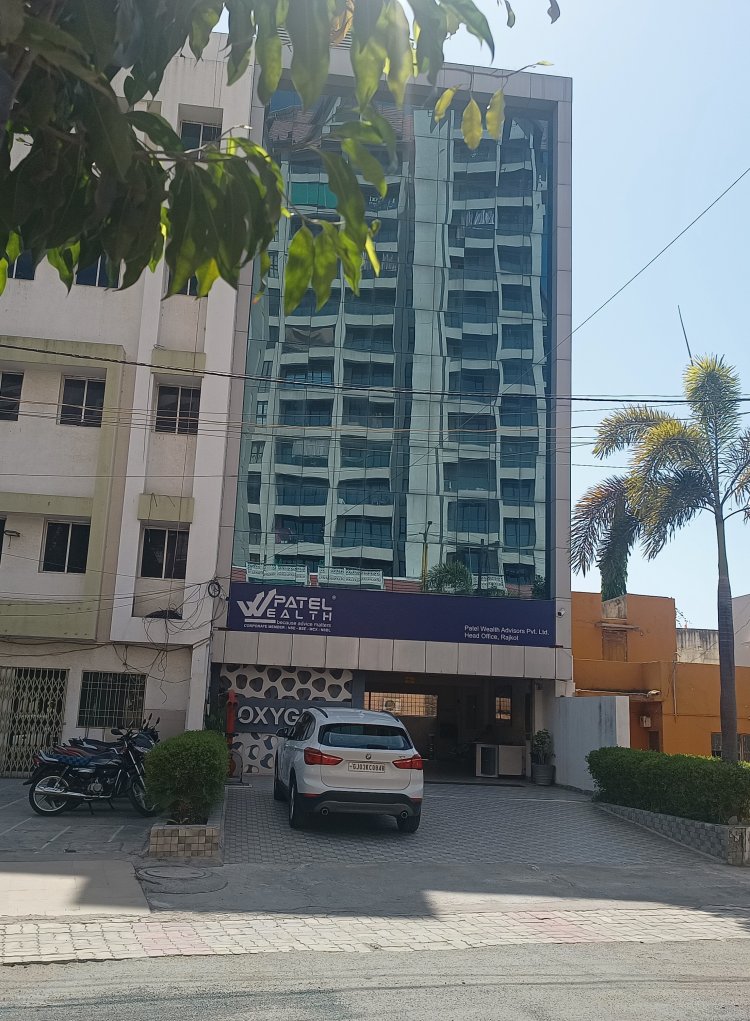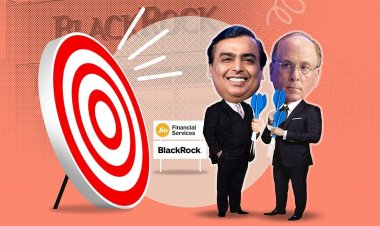SEBI Uncovers India's First And Largest Stock Spoofing Scam Involving 173 Stocks and ₹3.22 Crore in Illegal Gains
SEBI uncovers India's first and largest stock spoofing scam, involving 173 stocks and illegal gains of ₹3.22 crore. Discover how the fraud unfolded and what it means for market integrity

Rajkot: In a landmark enforcement action, the Securities and Exchange Board of India (SEBI) has exposed the country's most extensive stock spoofing operation to date, implicating Patel Wealth Advisors Pvt Ltd (PWAPL) and its directors in manipulative trading activities across 173 stocks. The regulator has ordered the seizure of ₹3.22 crore in illicit profits and imposed trading bans on the firm and its key personnel.
What is Stock Market Spoofing?
Spoofing involves placing large buy or sell orders with no intention of executing them. These orders create a false impression of market demand or supply,
Spoofing is a fraudulent trading practice where traders place fake buy or sell orders to manipulate stock prices, only to cancel them before execution. This creates a false impression of demand or supply, misleading other investors.
How the Stock Market Spoofing Scam Worked
According to SEBI’s order, Patel Wealth Advisors:
-
Placed large buy orders to create artificial demand and push up stock prices.
-
Cancelled orders before execution once prices rose.
-
Sold their own holdings at inflated prices, booking profits.
-
Repeated the tactic with sell orders to drive prices down and buy back shares cheaply.

Key Findings of SEBI’s Investigation on Stock Market Spoofing
-
173 Stocks Manipulated: Patel Wealth Advisor and its directors engaged in spoofing across 173 stocks between 2018 and 2021, making it India’s largest spoofing case to date.
-
₹3.22 Crore Illicit Profit: The accused made unlawful gains of ₹3.22 crore through deceptive orders.
-
Fake Orders Detected: SEBI’s surveillance systems flagged thousands of non-genuine orders placed to artificially inflate or depress stock prices.
-
Directors Banned: SEBI has debarred four directors—Piyush Patel, Ashish Patel, Sunil Patel, and Hiren Patel—from accessing the securities market for varying periods (ranging from 3 to 10 years).
The Modus Operandi: Deceptive Stock Order Placement
SEBI's investigation revealed that between January 2022 and January 2025, PWAPL engaged in 621 instances of "spoofing"—a fraudulent practice where large buy or sell orders are placed without the intention of execution, creating a false impression of market demand or supply. These deceptive orders influenced other investors' trading decisions, allowing PWAPL to execute genuine trades on the opposite side of the market at favorable prices. After profiting, the firm would promptly cancel the initial fake orders.
This manipulative strategy was employed across both cash and derivatives segments over 292 trading days, significantly disrupting market integrity and investor trust.
Specific Instances: Coffee Day and Syrma SGS
SEBI's order highlighted particular cases to illustrate the scheme's execution. On September 14, 2022, in the scrip of Coffee Day Enterprises Ltd, PWAPL placed substantial fake buy orders, executed sell trades at inflated prices, and subsequently canceled the deceptive orders, resulting in approximately ₹9 lakh in unlawful gains. A similar pattern was observed with Syrma SGS Technology Ltd on August 29, 2022, yielding around ₹4.44 lakh in profits.
SEBI Regulatory Action: Bans and Seizures
In response to these findings, SEBI issued an interim order on April 28, 2025, barring PWAPL from trading through its proprietary account. Additionally, four current and former directors—Denish Maheshbhai Patel, Mitul Umedlal Vora, Kaushal Vasantrai Patel, and Minish Maheshbhai Patel—have been prohibited from buying, selling, or dealing in securities. The regulator has also directed the impounding of ₹3.22 crore, representing the unlawful gains accrued from the spoofing activities.
SEBI emphasized that while the term "spoofing" is not explicitly defined in Indian law, such practices fall under fraudulent and unfair trade practices prohibited by the Prohibition of Fraudulent and Unfair Trade Practices (PFUTP) Regulations. The regulator stated, "By manipulating market dynamics through this tactic, spoofers can effectively buy at lower prices and sell at higher prices (or vice versa), profiting from the artificial price movements they have induced."
- SEBI has prohibited PWA from trading in securities using its proprietary account.
- Four current and former directors of PWA have also been barred from trading.
- SEBI has ordered the seizure of ₹3.22 crore in unlawful gains.
- A detailed investigation into the matter is ongoing.
Why This Stock market Spoofing Case Matters
This is India’s first major spoofing crackdown, signaling SEBI’s tightening vigil against market manipulation. Experts warn that spoofing distorts fair trading and harms retail investors.
What’s Next?
SEBI has urged investors to remain cautious of abnormal price movements and report suspicious trading activities. The regulator is also enhancing its AI-based surveillance tools to detect spoofing faster.
Implications for Market Integrity
This case marks a significant milestone in SEBI's efforts to combat market manipulation and protect investor interests. The regulator's decisive action serves as a warning to market participants about the consequences of engaging in deceptive trading practices. SEBI's Whole-time Member Kamlesh Varshney noted that allowing such activities to continue would severely undermine trust in the securities market.
As SEBI continues its detailed investigation, this enforcement action underscores the importance of vigilance and integrity in maintaining fair and transparent financial markets.
Read More Similer News Below:

 Editor
Editor 





























